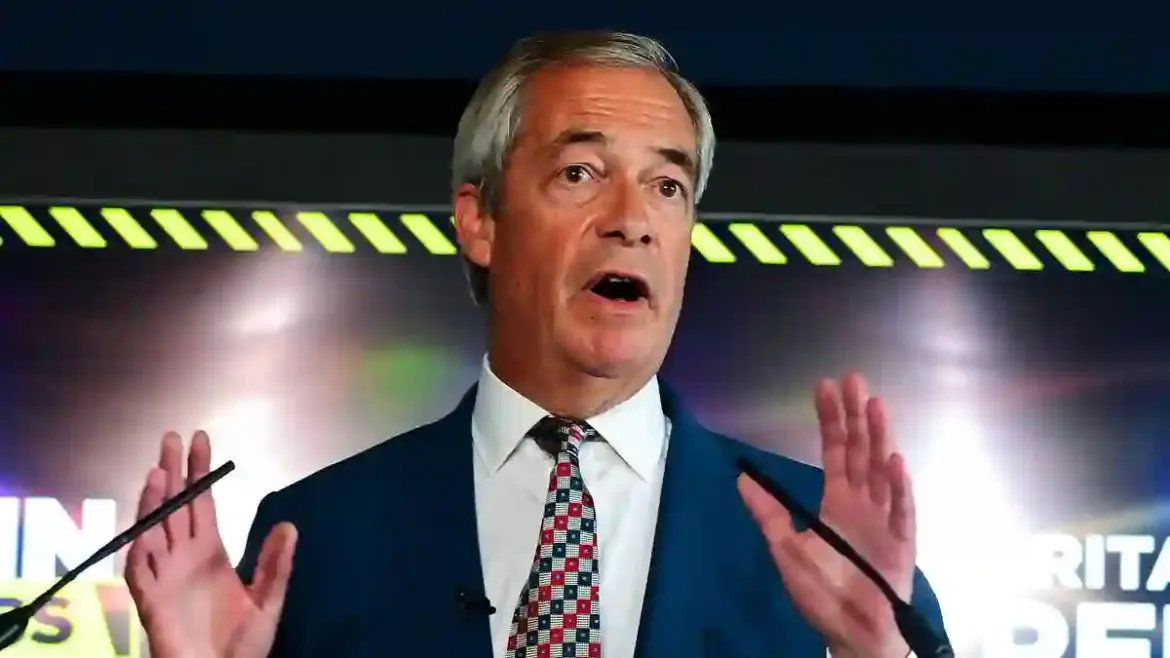The debate over immigration is once again taking center stage in British politics.
Nigel Farage, now leading Reform UK, has thrown down a direct challenge to Prime Minister Keir Starmer—demanding that he abandon what Farage calls “outdated” foreign treaties and international courts in order to take tougher action against illegal migration.
A Call to Break Away From Foreign Courts
In a major speech in Oxfordshire, Farage will question whether the Prime Minister wants to stand with British citizens or continue aligning with rulings from international judges.
His argument rests on one bold claim: that only by leaving the European Convention on Human Rights (ECHR) can Britain fully control its borders.
Starmer, however, has repeatedly said Britain will “never” walk away from the ECHR, setting up a direct clash between the two men.
Farage’s Deportation Blueprint
Farage plans to unveil sweeping proposals for what he calls a “mass deportation” program.
His policy would see all migrants arriving in small boats immediately arrested, detained, and then deported.
His government, he says, would sign returns deals with countries such as Afghanistan and Eritrea, send migrants to “third countries” like Rwanda or Albania, and even consider housing them on British overseas territories such as Ascension Island.
To reinforce his plan, he promises that under a Reform UK government, five charter flights a day would take off to remove people, while those who leave voluntarily could use a “deportation app” and receive £2,500 plus a free flight home.
Emergency Laws and a New Bill of Rights
Central to Farage’s plan is emergency legislation called the Illegal Migration (Mass Deportation) Bill.
It would bar small-boat arrivals from ever claiming asylum.
Alongside this, Reform UK would push through a new British Bill of Rights—designed only for citizens and legal residents—that focuses on free speech and liberty rather than human rights law as defined by international courts.
A Political Divide Growing Wider
Farage insists the choice is clear: “Does the Prime Minister stand with the British people and national security, or does he stand with outdated treaties and human rights lawyers?”
He argues that Starmer’s refusal to leave the ECHR shows he is putting global agreements above national safety.
This isn’t just rhetoric. Reform UK says it would build detention centers on military sites within 18 months, housing up to 24,000 people who would not be allowed bail or freedom to leave.
Starmer Under Pressure From All Sides
Starmer’s government has already shown signs of taking a harder line, declaring earlier this year that a judge had made the “wrong decision” in granting residency to a Palestinian family.
Labour also pledged to restrict the use of “family life” claims under Article 8 of the ECHR, which often block deportations.
More recently, the Home Office announced changes to asylum appeals, aiming to speed them up by reducing the role of judge-led tribunals.
And in a separate initiative, over 100 migrants were recently detained ahead of deportation to France as part of a “one in, one out” deal expected to begin soon.
A Policy With Familiar Echoes
Critics, however, say Farage’s grand plan is not original.
Many of the proposals mirror Conservative Party ideas from recent years, including using Rwanda as a deportation destination and considering Ascension Island.
Former Tory governments had already passed laws banning asylum claims from small-boat arrivals, though deportation flights never materialized.
As far back as 2006, under David Cameron, Conservatives pushed to replace Labour’s Human Rights Act with a British Bill of Rights.
Reactions From Rivals
The Conservatives were quick to dismiss Farage’s announcement.
Shadow Home Secretary Chris Philp argued that Reform UK is simply “copying and pasting” Tory policies without doing the “serious thinking” needed to govern effectively.
Labour sources echoed that view, branding the speech “a tired rehash” of Tory ideas that previously failed to stop record-high asylum costs and a spiraling small-boats crisis.
Reform UK hit back, accusing both major parties of failure.
“The Conservatives had 14 years in power, and under their watch, illegal migration surged to unprecedented levels,” the party said.
What’s Really at Stake
Behind the fiery exchanges lies a bigger question: whether Britain should remain bound to international courts or go its own way.
For Farage, the answer is simple—rip up old agreements, build new detention centers, and deport migrants en masse.
For Starmer, the challenge is balancing international obligations with domestic anger over border control.
And with public frustration rising over Channel crossings and migrants being housed in hotels, this battle over immigration policy looks set to dominate British politics well beyond this week’s headlines.



